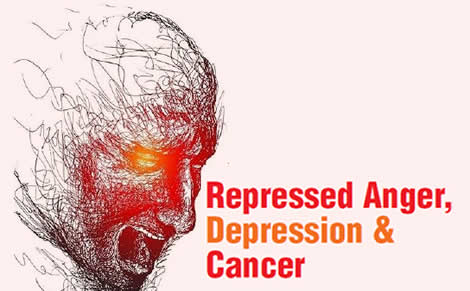Repression is a defense mechanism in which the person is unable to remember or to be cognitively aware of disturbing wishes, feelings, thoughts, or experiences (American Psychological Association, 1987, p.394). According to George E. Vaillant’s (1992) classification, it is one of the neurotic defense mechanisms, because they “do not individually demonstrate strong relationships to symptoms or psychosocial functioning” (p.213). They are less conscious than the process of suppression.
According to the theory of repression, Sigmond Freud says repressed wishes still exist. The still existing repressed wish, here it is anger can create further problems in the emotional life. “Studies indicate that angry and aggressive behaviour that goes unchecked can eventually cause changes to the brain that will decrease the production of serotonin and increase the chances of angry and aggressive behavior” (Hendricks et.al., 2013, p.7)
The repressed anger may lead to depression. One of the psychological explanations of the process is in the following way. “This excess anger creates guilt and anxiety, and becomes repressed and projected. The resulting belief that others hate the patient leads to the presumption that they are somehow inadequate or deficient, lowering self-esteem” (Busch, 2009, p. 9). This lower self-esteem is the major feature of the depression. Repressed anger is also an underlying cause for both anxiety and depression (Hendricks et.al., 2013, p.11). Repression can also create some psychosomatic problems. Accordig to the International Encyclopedia of the Social Sciences continuous and repressed aggressions can, result in permanent chronic emotional tensions which disturb the functions of various organ systems causing damages to physical activities like digestion, respiration, and circulation (Pollock, 1968, p. 9).
There are studies which explain that repression can lead to cancer “Repressing anger magnified exposure to physiological stress, thereby increasing the risk of cancer” (Shlackman, 2009, p. 1). There had been a research at Stanford University in California which found that repression can cause an early death for women with breast cancer. It says “women who repressed their emotions were more likely to show disruptions in the normal balance of the stress hormone cortisol, compared with those who did not.. ..the unbalanced cortisol fluctuations can predict early death in women with breast cancer”. (Shlackman, 2009,


